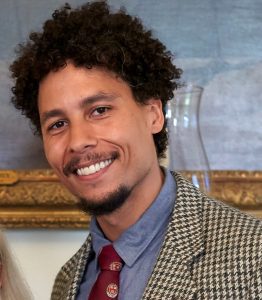As students across the nation head back to the classroom this month, we are celebrating First-Generation students. A First-Generation College Student is defined as a student whose parents didn’t attend college; or is the first person in their immediate family to attend college; or neither parent has at least one year of college.
What is the most critical factor to first-generation student success?
 I will preface my not-so-sage advice by saying that I still have a lot to learn. Despite how old the students I work with can make me feel, I often remind myself that I’m a 27-year old that still has so much to learn about myself and the world around me. However, I am also a fast learner that has deeply embedded himself in a Harvard network. Here are three thoughts, still in process, that have been critical to my success as a first-generation, low-income student.
I will preface my not-so-sage advice by saying that I still have a lot to learn. Despite how old the students I work with can make me feel, I often remind myself that I’m a 27-year old that still has so much to learn about myself and the world around me. However, I am also a fast learner that has deeply embedded himself in a Harvard network. Here are three thoughts, still in process, that have been critical to my success as a first-generation, low-income student.
- A willingness to ask for help. This is not something that came naturally to me. Growing up as the son of working-class immigrants, I learned to do things on my own. I figured out how to escape my failing public school system, how to fund a private high school education, and how to apply to elite colleges, all on my own. These experiences made me an extremely resourceful person. But, college taught me that not all experiences are best handled on your own. I’ve learned that asking for help during challenging experiences is often your best resource for overcoming the challenge.
- A willingness to take risks and learn from failure. This, too, hasn’t come naturally to me. Growing up as a poor, first-generation student felt like there was no room for failure. I tried my best in every class, every exam, every extracurricular experience and constantly stressed about whether it would be good enough to get me to a place like Harvard. And this, too, was something that I had to unlearn once I was given the space to truly explore in college. It’s taken some time, but I’ve learned that risks often come with the greatest reward, even if that reward comes in the form of failure. Failure teaches you about yourself and your inner strength. It teaches you that you will find a way to thrive and be happy, even when things don’t go according to plan. It teaches you that plans can often be silly and distracting. Most importantly, failure taught me that I can fail without ever being a failure.
- A willingness to connect with those that don’t share my lived experience. This has been one of the toughest lessons to learn. Representation matters, and it matters that the most elite spaces I’ve occupied—Harvard, a management consulting firm, a Silicon Valley startup accelerator—have been filled with people who don’t look like me or share my experience of growing up as a queer person of color in poverty. This is a problem that I am committed to solving in the long-term. However, in the short-term, I must recognize that almost every major opportunity in my life has come from someone who didn’t look like me or share my lived experience. The world in which we live is unfair, but that doesn’t mean that every person in it is unfair. My life began to dramatically change for the better when I opened myself up to this possibility.
Daniel Lobo is an assistant director of career services at Harvard College, where he graduated in 2014. As an undergraduate, he founded the Harvard College First-Generation Student Union, now known as Harvard Primus. Currently, he serves as president of the First-Generation Harvard Alumni shared interest group.
